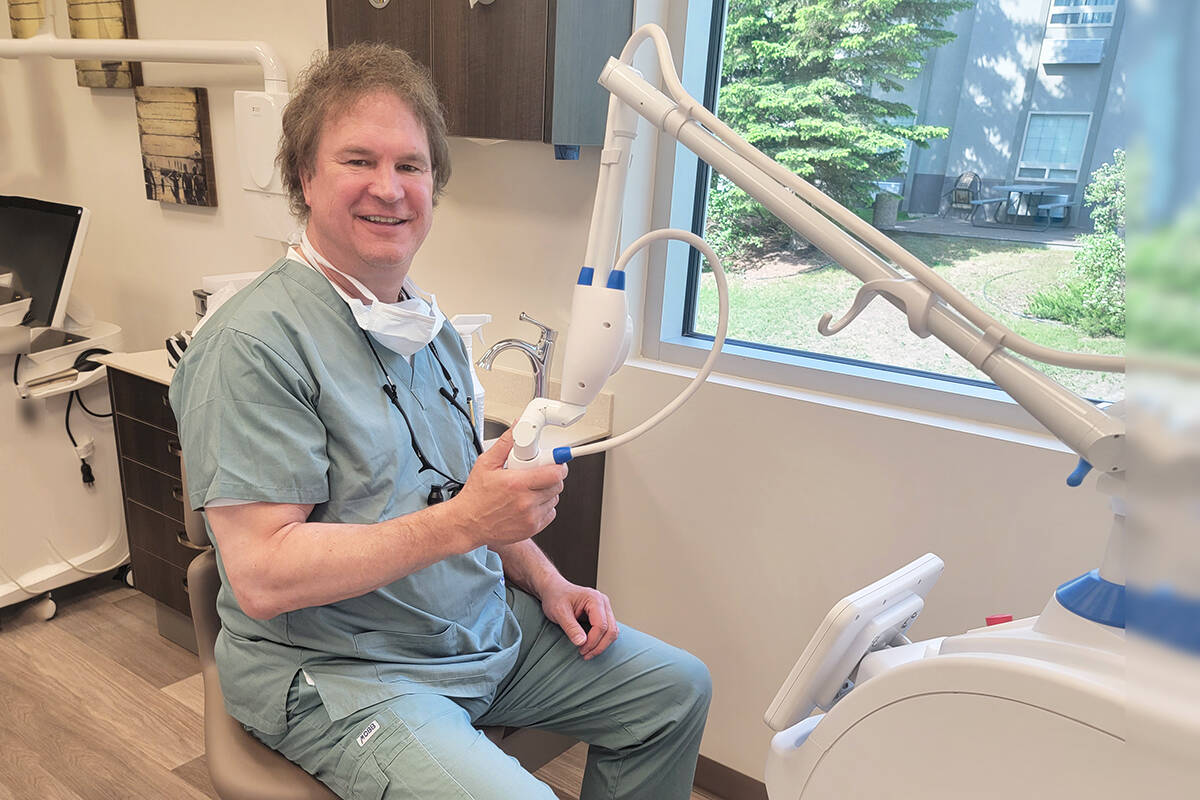4 ways to support children’s healthy teeth (that don’t involve candy!)

Dr. Mike Dolynchuk, owner of Caroline Dental Center and Dolynchuk Dental Center in Central Alberta, offers a few tips to support children’s oral care.
We know that indulging in too many sticky sweets can increase children’s risk of cavities, but did you know that candy isn’t the only culprit when it comes to their oral health concerns?
In fact, everything from when teeth and gum care begins to their sports activities can play a part, explains Dr. Michael Dolynchuk, dentist and owner of Dolynchuk Dental Center in Red Deer.
“Like all aspects of our health, the health of gums and teeth comes down to many factors, including how well children are caring for their teeth at home, what they’re eating, and the protection used when playing sports, for example,” Dr. Dolynchuk says.
- Start early. Like many aspects of growing up, establishing a routine early sets kids on the path to success. In the case of oral care, that means starting before teeth come in: use a soft baby brush or a damp, clean washcloth to gently clean baby’s gums and teeth as they emerge. Around age three, add a pea-sized amount of fluoridated toothpaste and continue brushing, and flossing teeth that are touching. As children get older, supervise as they take over brushing and flossing themselves.
- Watch what you drink. When it comes to gums and teeth, what children drink – and when – can be as important as what they eat, Dr. Dolynchuk explains. For babies and toddlers who go to bed with a bottle, for example, ensure it’s filled with just water – never juice, formula or milk, which contain sugar that remains on the teeth as they sleep. As children get older, avoid letting them sip on sugary liquids like milk and juice through the day, offering them at mealtimes instead. Water is always a good choice!
- Eat a nutritious, balanced diet. What we eat can impact the health of teeth and gums, underscoring the importance of a healthy diet. Calcium, for example, found in dairy, broccoli, beans and nuts, is essential for teeth and bone health (and vitamin D helps the body absorb calcium); magnesium, found in green vegetables, legumes and nuts, is important for bone formation and potassium, in fruits and vegetables, helps reduce calcium loss.
- Play smart. Cavities and gum disease aren’t the only risk to teeth in children and teens, Dr. Dolynchuk notes. Falls, collisions and sports injuries can also crack, chip or loosen teeth and damage gums. While accidents will happen, a few steps can help reduce the likelihood of oral issues: regularly check the teeth of toddlers and younger children for chips or cracks; in the car, always use a properly installed car seat for younger children, and for older kids, ensure their seatbelt fits well; and when playing sports, wear a mouthguard, which can help prevent both dental damage and other injuries.
For more information, schedule an appointment at Dolynchuk Dental Center. Find the clinic at dolynchukdental.ca, and at 6845 66 St., in Red Deer’s new QEII Wellness Centre. Call 403-309 2167 to make an appointment.
